Research Article
Issue Reviewers

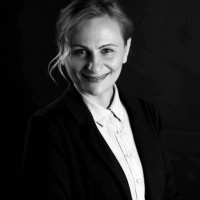


 Web
Web
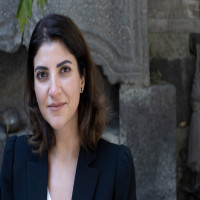
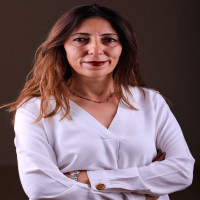
1967 Fethiye doğumlu olan Gülseren Şendur Atabek, Akdeniz Üniversitesi İletişim Fakültesi, Radyo, Televizyon ve Sinema Bölümü’nde profesördür. Akademik yaşamına araştırma görevlisi olarak 1994 yılında Gazi Üniversitesi İletişim Fakültesi’nde başlamıştır. Lisans derecesini Dokuz Eylül Üniversitesi’nde, yüksek lisans ve doktora derecelerini ise Ankara Üniversitesi’nde alan Şendur Atabek’in doçentlik derecesi iletişim bilimleri alanındadır. Medya Metinlerini Çözümlemek (2007) ve Türk Romanında Gazeteciler (2008) adlı kitapların yazarı olan Şendur Atabek’in ayrıca, temel ilgi alanı olan medya tarihi, medya analizi ve görsel iletişim konularında çeşitli makale ve çevirileri bulunmaktadır.
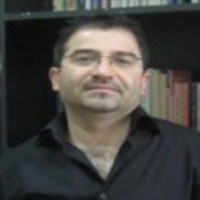
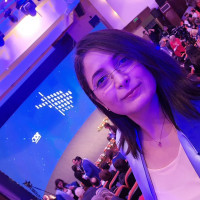
After graduating from Istanbul University, Faculty of Arts and Sciences, English Translation and Interpreting (Major) and from the Faculty of Communication, Radio, TV and Cinema (Double Major) programs in 2012, Aydoğan was appointed as a research assistant to the Advertising Department of the Public Relations and Promotion Department of the Faculty of Communication at Akdeniz University within the scope of the Faculty Member Training Program (ÖYP) in 2013. In 2016, she defended her thesis titled "Reflection of Globalization on Advertisements and Advertising Strategies in the Context of Globalization" and graduated from the Public Relations and Promotion Department of the Institute of Social Sciences at Akdeniz University. With the opening of the Advertising Department of the Faculty of Communication at Akdeniz University in 2018, she was appointed to the Advertising Department as a research assistant. In 2021, she graduated from Akdeniz University, Institute of Social Sciences, Department of Public Relations and Publicity by successfully defending her doctoral thesis titled "A Model Proposal for Adult Digital Advertising Literacy" and received her doctorate on 23.12.2021. She was appointed as an assistant professor to the Department of Advertising on 01.02.2023 and still serves as an assistant professor. She received the title of associate professor in Advertising from the Interuniversity General Assembly on 22.03.2024. She continues her research in the fields of digital advertising, brand management, marketing communications, research methods and artificial intelligence.
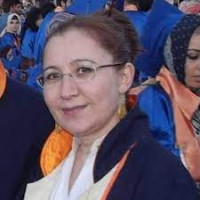



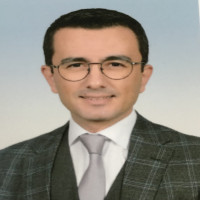







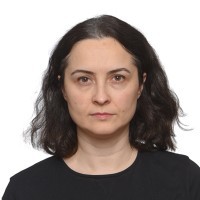






ÖZGEÇMİŞ
Zeynep Benan Dondurucu, 2010 yılında Anadolu Üniversitesi İletişim Bilimleri Fakültesi Halkla İlişkiler ve Reklamcılık Bölümü'nde lisans eğitimini tamamlamıştır ve Anadolu Üniversitesi İktisadi ve İdari Bilimler Fakültesi İşletme Bölümü'nde yan dal yapmıştır. 2010-2012 yılları arasında reklamcılık ve halkla İlişkiler sektöründe çalışmıştır. İstanbul Üniversitesi Sosyal Bilimler Enstitüsü Halkla İlişkiler Bölümü'nde 2014 yılında yüksek lisans diplomasını almıştır. Aynı yıl, Kocaeli Üniversitesi, Sosyal Bilimler Enstitüsü, Halkla İlişkiler Bölümü ve tanıtım doktora programında eğitimine devam eden Dondurucu, 2013 yılında Kocaeli Üniversitesi İletişim Fakültesi Halkla ilişkiler ve Tanıtım Ana Bilim Dalında araştırma görevlisi olarak çalışmaya başlamıştır. 2022 yılından beri aynı üniversitede Dr. öğretim üyesi olarak çalışmaya başlayan, 2023 yılında iletişim çalışmaları alanında Doçent unvanı alan Dondurucu'nun çalışma alanı yeni medya, e-yönetişim, e-belediyecilik, ötekileştirme ve nefret söylemi, dijital gazetecilik, yeni medyada halkla ilişkiler ve sivil toplum iletişimidir.


1981 yılında Hekimhan/Malatya’da doğdu, ilk, orta ve lise eğitimini Malatya’da tamamladı. Dokuz Eylül Üniversitesi Güzel Sanatlar Fakültesi Sinema-Televizyon bölümünden 2003 yılında mezun oldu. 2004 yılında Afyon Kocatepe Üniversitesi Güzl Sanatlar Fakültesi Sinema ve Televizyon bölümünde araştırma görevlisi olarak çalışmaya başladı. 2010 yılında Afyon Kocatepe Üniversitesi Sosyal Bilimler Enstitüsü Sosyoloji Anabilim dalında “Kültür Endüstrisi ve Ideoloji: Hollywood ve Steven Spielberg Sinemasi Örneği” adlı tezle yüksek lisans eğitimini, 2021 yılında Dokuz Eylül Üniversitesi Güzel Sanatlar Enstitüsü Film Tasarımı bölümünde “2000 Sonrası Türk Sinemasında Aleviliğin Görünürlüğüne Dair Temsiller” adlı tezle de doktora eğitimini tamamladı.Tekirdağ Namık Kemal Üniversitesi Güzel Sanatlar Tasarım ve Mimarlık Fakültesinde doktor öğretim üyesi olarak olarak çalışmaya devam etmektedir.

Aim & Scope
Mediterranean Journal of GWS - a periodical which includes interdisciplinary conceptual, empirical and methodological discussions - aims at developing dialogs among researchers from various disciplines and producing and popularizing current discussions in the field and making them accessible.
Mediterranean Journal of Gender and Women’s Studies (KTC) is published biannually in May and November as a peer-reviewed international electronic journal. It welcomes empirical studies and compilations prepared from the perspective of women and gender among all disciplines relating to women and gender issues particularly sociology, psychology, anthropology, communications, history, economics, education, business administration, law, health sciences and political science.
Author Guidelines
Mediterranean Journal of Gender and Women's Studies is dedicated to publishing unique interdisciplinary studies designed with women, gender and feminist perspectives. The content of the journal is created as the publications that complete the editorial process are published in full-text on-line on the internet which is subject to the General Public License.
The work to be submitted to the Mediterranean journal of Gender and Women's Studies should not have been published in any other media/elsewhere. In order for the submitted full texts to be taken into the evaluation process, it is necessary to include titles, English / Turkish abstracts, and references. The full text of the works and texts should consist of a maximum of 10,000 words, including abstracts, tables / figures, references and text content. It would be appropriate for the work to be monitored in the following order:
Title, Author Information (Name, Surname, the Organization where s/he works for, Contact Information), Abstract, Key Words, English Title, Abstract, Keywords, Introduction, Main Text, Method, Findings, Discussion, Conclusion, References, Writer's Note.
Articles must be prepared in Microsoft Word format. It is necessary to leave margins of 3 cm from the left, 2.5 cm from the top, and 2 cm from the right and bottom of the page structure.
The top and bottom headings of the article should be formatted in 12 point Times New Roman in bold. The heading of the work should be at the beginning of the abstract in Turkish and English on the first page of the full text. Headlines can be at most 40 words long. Regardless of the language used, the abstract must consist of at least 150 and at most 250 words. A min. of 3 and a max. of 5 keywords that indicate the quality of the article should be specified in the abstract.
In the articles that will apply to the GWS journal, there should be an extended summary of at least 500 words in English (Turkish for articles written in English) on the purpose, method, finding and result of the study. Care should be taken that the extended abstracts are not the same as the abstract in the second language of the article.
Except for the headings, the text content of the article should be in 12 point Times New Roman font. The text should be set to 1.5 cm line spacing and one space (2 cm) should be left between the paragraphs. The first lines of the paragraphs should be indented 1.27 cm from the left
Visual contents such as tables, figures, pictures and graphics should be included in the text.
The references page lists only the sources cited in the article. Every reference list entry should have at least one corresponding in-text citation in the American Psychological Association (APA) style. Further information on providing reference can be obtained from the APA Publication Manual.
Ethical Principles and Publication Policy
Click here for Copyright Transfer and the Conflict of Interest Forms.
On the behalf of all authors, the corresponding author:
- The article submitted is the original work of author(s);
- All authors participated in the work in an individual way and are prepared to take all kinds of the responsibilities for the work;
- In the submitted article, all authors are authorized to transfer all the financial rights of them related to the article to KTC Journal and make commitments in the form, therefore they will be responsible for all disputes that have occurred and that may occur;
- All authors have seen and approved the submitted article’s latest form.
- E-mail and street addresses of all authors have been entered into the Dergipark System correctly.
- The article has not been published and is not being submitted or considered for publication elsewhere;
- The text, illustrations, and any other materials included in the article do not infringe upon any existing copyright or other rights of anyone.
- S/he accepts and undertakes that his/her financial rights on the submitted article, in particular all public transmission rights including processing, reproduction, representation, printing, distribution, and online transmittal are transmitted to KTC Journal for unlimited use.
Notwithstanding the above, the author(s) retain(s) intellectual property rights such as:
- the right to use the entire article free of charge in their books or other works in the future,
- the right to reproduce the article for their own purposes provided the copies are not offered for sale.
- With that being said, author(s) has/have the right to reproduce, distribute the article by mail or electronically.
The use of any part of the article in another publication is permitted, provided that Mediterranean Journal of Gender and Women's Studies is specified as the publisher and referred to the Journal. While citing, Journal Name, Article Name, Name (Surname) of the Author (s), Volume No, Issue No and Year should be given.
The corresponding author also undertakes that “GWS Journal and Journal editors” are not responsible for the demands for rights or cases to be opened by the third parties due to the violation of right and all the responsibilities belong to him/her as a corresponding author. Besides, the author undertakes that there is not any crime element or any statement against law in the article, any kind of method or material which is against law is not used during the research process, and takes all necessary legal permissions and behave in accordance with the ethical rules about the work.
- Mediterranean Journal of Gender and Women’s Studies guarantees to preserve the highest standards of publication ethics and adheres to the following principles of Core Practices prepared in accordance with the guidelines and policies developed by the Committee on Publication Ethics (COPE) for journal editors.
- Submitted manuscripts should not have been previously published, or scheduled and/or evaluated to be published in another journal.
- Mediterranean Journal of Gender and Women’s Studies abides by the standards of COPE for publication ethics. Therefore, in cases of misconduct or violation of publication ethics, the journal will take the publication ethics flowcharts developed by COPE (https://publicationethics.org/resources/flowcharts) as a reference.
- In accordance with the double-blind peer review process, Mediterranean Journal of Gender and Women’s Studies conserves the anonymity of authors and reviewers when submitted articles are sent for review.
- It is the journal’s responsibility to maintain the confidentiality of any information regarding authors. However, such information may be shared in a possible enquiry in order to investigate any allegations of misconduct. Mediterranean Journal of Gender and Women’s Studies defines its principles regarding any allegations of misconduct in accordance with the guidelines prepared by the COPE and shares these principles with the stakeholders on its website.
- Text recycling, that is using the chapters of a single text in various publications of the same author without any reference, is unacceptable for Mediterranean Journal of Gender and Women’s Studies. In such cases, the journal acts according to the relevant guidelines determined by the COPE.
- Mediterranean Journal of Gender and Women’s Studies protects and supports freedom of expression under all circumstances. Moreover, the journal considers any racist, sexist or discriminatory content as hate speech and uses its right to refuse such contents without sending them for review.3
- In case of a conflict of interest regarding an article, the journal openly supports intellectual and ethical standards; and defines relevant ethical principles that authors, reviewers, editors and theme editors should comply with.
- Mediterranean Journal of Gender and Women’s Studies is sensitive and responsible for publishing edited contents, commentaries, apologies and refutations.
- Editors and publishers of the journal are obliged to follow legal advices in case that repetitions in an article, that is coinciding texts in two different publications, violate any intellectual property rights.
Policies concerning possible abuse claims
KTC Journal adopts the measures of COPE's "possible abuse" situations against abuse and misuse. Therefore, in the Publication Ethics Principles section publisher, editors, referers, editorial board and authors ' obligations throughout the pre-, in progress- and post- publication possible abuse situations are clearly defined in detail.
- The purpose of collaborating and making efforts to investigate in cases of suspected abuse is to provide benefits such as acting in a cooperative way with investigations/writers and/or institutions. In cases where the same work is sent to different publications, comparing different versions of the same works submitted to different journals while comparing the descriptions compiled from the authors and investigators for the submitted work is necessary.
- KTC Journal, considering the importance of confidentiality in the process of scientific publishing, shares information about the authors and referers only to prevent and respond to a suspicious misuse of research and to fulfill its obligation.
Upon any necessity, information is shared only with editors who are believed to have familiarity with the subject, and the shared information is limited solely to the fact-only content. - Editor and field editors commit to ensure the largest possible protection of communication confidentiality.
- Mediterranean Journal of Gender and Women’s Studies contemplates that possible conflicts of interest among its stakeholders could damage the publication ethics. Therefore, the journal defines the liabilities of all stakeholders in order to determine and prevent conflicts of interest.
Referee Responsibilities
- The referers evaluate the articles in terms of scientific content, regardless of their authors' ethnic origin, gender, religion, religious beliefs or political philosophy. In terms of referers; there should be no conflict of interest or competition related to or between researchers, authors or other related parties. Referee decisions must be objective.
- Referers must indicate the published related publications not cited by the author. They are obliged to inform the editor when all information about the submitted article is kept confidential and it notices the copyright infringement and plagiarism made by the author.
- If the referee thinks that the content of a submitted post is incompatible with his or her scientific field or accumulation, he/she must inform the editor and ask for forgiveness from the evaluation process. Click to access the PDF document "Referee Guide" prepared by COPE.
Editorial responsibilities
- Editors evaluate the articles from the in terms of scientific content, regardless of their authors ' ethnic origin, gender, gender preference, religion, religious beliefs or political philosophers. They provide a fair pair of double-blind peer-review processes for the publication of sent posts. They ensure that all information about the submitted article is kept confidential until publication.
- Editors are responsible for the content and total quality of the publication. They publish corrections as needed through the typesetting error pages.
- Editors should not allow any conflicts of interest or competition between authors, editors and referers. In KTC Journal, only the editor has full authority in the appointment of the referee and is responsible for the outcome decision on the publication of the articles.
Click to access the PDF document "general duties and responsibilities of editors" prepared by COPE.
Price Policy
The journal does not charge any submission fees or page charges.
Manuscripts to be submitted to the Mediterranean Journal of Women's Studies and Gender (KTC) must not have been previously published, included in the publication program, or have not entered the evaluation phase for publication in another journal. The copyright of the articles published in the Mediterranean Journal of Women's Studies and Gender is licensed under CC BY-NC 4.0. In accordance with the Creative Commons Attribution principles, it is allowed to share the works by citing the author and the Journal.
The author has to sign the Copyright Transfer Form and upload it to the Dergipark system when applying for an article to the KTC Journal.
Click here for the Copyright Transfer Form.
Indexes
Citation Indexes
Other Indexes
Journal Boards
Journal Board










